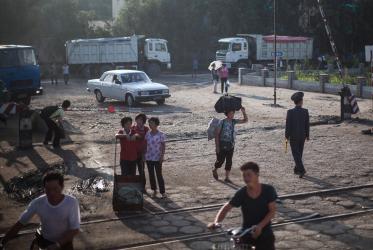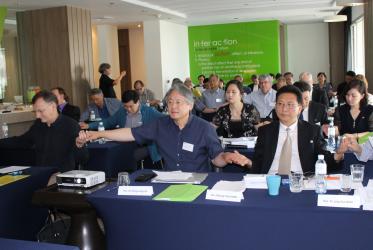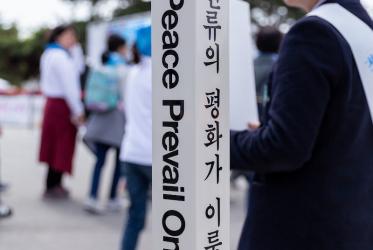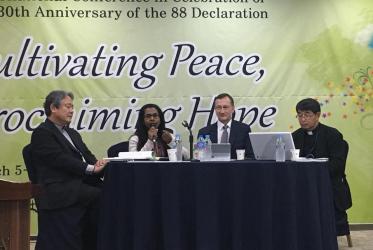Displaying 1 - 20 of 29
Peace and unity on the Korean Peninsula matters globally
25 February 2021
Worldwide prayer campaign begins to end 70-year Korean War
06 February 2020
WCC delegation meets with Korean prime minister
19 November 2019
A passionate Korean feminist and ecumenist
21 August 2019
WCC pays tribute to ecumenist pioneer
08 May 2019
#WCC70: Nathan Söderblom, ecumenical pioneer
29 August 2018
Broken glass of hope grown out of rubble
16 July 2018
WCC welcomes “powerful sign of hope” on Korean Peninsula
08 March 2018
Trying to do good for the world
18 December 2017











